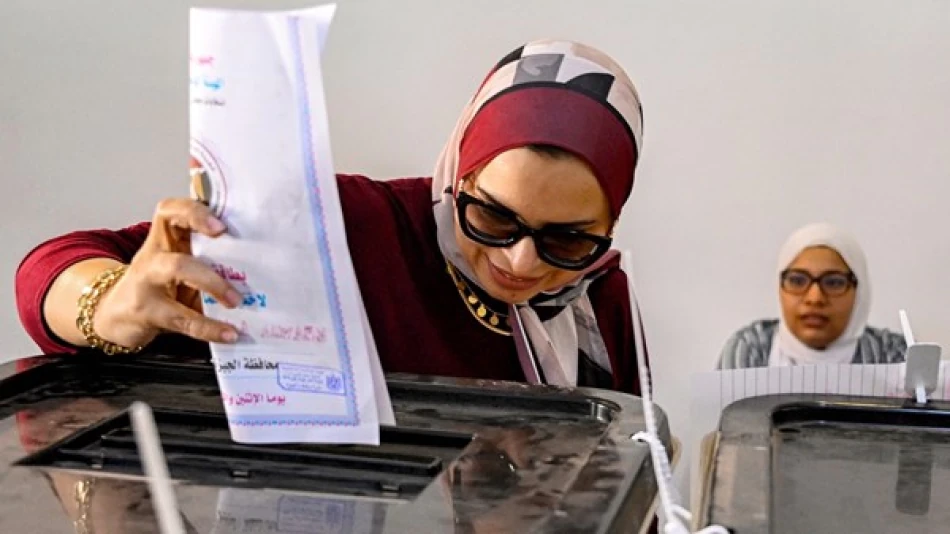
Egyptian Senate Elections Conclude First-Day Voting
Egypt's Senate Elections Draw Strong Turnout as Democratic Process Continues Under International Scrutiny
Egypt's National Elections Authority closed over 8,000 polling stations nationwide Monday evening after the first day of Senate elections witnessed notable voter participation. With 424 candidates competing for seats and 69 million eligible voters, the two-day election represents a significant democratic exercise under the watchful eyes of international observers and diplomatic missions.
Election Mechanics and Scale
The voting process, which began Monday morning across all Egyptian governorates, operates under judicial supervision with polling stations closing at 9 PM sharp. The election features 424 candidates running on an individual basis, split between 183 independents and 241 representing various political parties.
The scale of Egypt's electoral infrastructure becomes apparent in the numbers: 8,000 polling committees managing the votes of nearly 69 million eligible citizens. This represents one of the largest democratic exercises in the Middle East and North Africa region, comparable to major elections in Turkey or Iran in terms of voter base.
International Oversight and Transparency Measures
Unlike many regional elections that face criticism for limited oversight, Egypt's Senate vote includes substantial international monitoring. Nine international organizations and 59 local groups are observing the process, alongside 20 diplomatic missions and both local and international media outlets. The total of 25,000 accredited observers suggests an effort to demonstrate electoral transparency.
Regional Context and Democratic Benchmarking
This level of international scrutiny places Egypt's elections closer to democratic standards seen in countries like Tunisia or Jordan, rather than the more restricted electoral processes in Gulf monarchies. The presence of multiple observer groups indicates Egypt's awareness that legitimacy increasingly depends on international validation.
Political Landscape and Candidate Diversity
The nearly even split between independent candidates (183) and party-affiliated ones (241) reflects Egypt's evolving political ecosystem. Independent candidates often serve as a barometer of grassroots political sentiment, while party candidates represent more structured political movements.
This balance suggests a political environment where individual personalities and local connections compete with organized party machinery—a dynamic common in transitional democracies across Latin America and Eastern Europe during their democratic consolidation phases.
Security and Stability Considerations
The mention of "tight security measures" accompanying the voting process highlights the ongoing security challenges Egypt faces. Unlike established democracies where elections proceed with minimal security presence, Egypt's approach reflects regional realities where electoral processes require substantial protection.
This security-heavy approach mirrors practices in countries like Iraq or Afghanistan, where democratic processes must balance openness with protection against potential disruption. For Egypt, demonstrating both security and democratic legitimacy remains crucial for maintaining domestic stability and international credibility.
Implications for Egypt's Political Future
The Senate elections serve as more than just a legislative contest—they function as a test of Egypt's democratic institutions and public engagement. High turnout, if sustained through the second day, would signal continued public faith in electoral processes despite regional democratic setbacks.
For international observers and regional partners, these elections provide insights into Egypt's political trajectory and its commitment to maintaining democratic facades that increasingly matter for economic partnerships and international aid relationships.
Most Viewed News

 Layla Al Mansoori
Layla Al Mansoori






